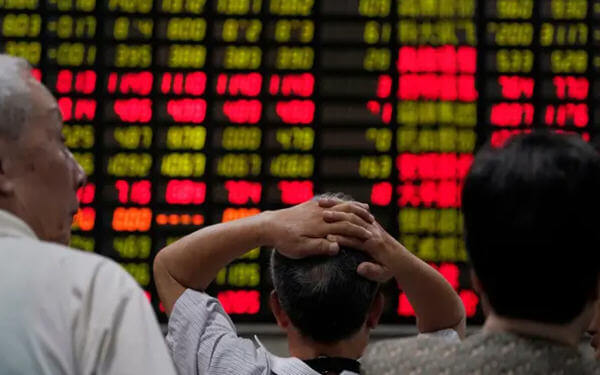
China’s securities exchanges have asked banks to extend agreements on loans in which shares have been pledged up as collateral — the latest attempt to stabilise the world’s worst performing major stock market last year.
Putting up a high percentage of a listed company’s stock in order to access loans is a common practice in China. As of Monday, there was Rmb4.4tn ($650bn) worth of shares on the line, or about 9.75 per cent of total market capitalisation, according to Wind Info.
Major shareholders in many small- and medium-sized companies have been known to pledge more than 40 per cent of their companies’ stock. Pledges soared in 2017 but have come down from a peak in October last year.
When share prices fall below a certain level, or if the borrowers cannot pay back the loans on time, banks take over the shares, sometimes resulting in steep drops in the value of the stock if the banks sell.
China’s market watchdogs have been keen to avoid sharp sell-offs, a factor that contributed to the more than 25 per cent decline in China’s benchmark CSI 300 last year. It was the worst-performing major market in the world in 2018 but the index is up more than 7 per cent since the start of this year.
Regulators began informally instructing banks last year to extend share-pledge agreements for the sake of market stability, even if it was not in the best interest of the bank.
“We’ve heard the regulator telling banks to delay for a while and it’s a clear concern for them,” said one banker familiar with the business. “But the banks should also be concerned about this.”
More recently, China’s stock exchanges formally told lenders to extend share-pledge agreements when they are breached. Notices posted to the websites of the Shenzhen and Shanghai stock exchanges on Friday instructed participants in the share-lending market to extend contracts in order to “protect the steady operation of the market”.
The new orders are good news for indebted company owners in search of liquidity, but the signal is less positive for banks.
“This is definitely good for the borrower,” said Chen Long, China economist at Gavekal Dragonomics in Beijing. “The banks could end up holding more equity in companies than they want.”
Company owners have been known to make highly leveraged bets on the stock market using loans backed by shares in their own companies. In one of the most dramatic cases in recent years, shares in Hong Kong-listed Huishan Dairy fell 90 per cent in 45 minutes in 2017 after chairman Yang Kai pledged 71 per cent of the company’s shares as collateral for a loan.
Share-pledge loans have been a lucrative market for banks and other brokers but the latest instructions from the regulator could make the business less appealing. The overall impact on the market, however, is expected to be positive as China starts a new year with worries over slowing economic growth.
“It alleviates some risk for a disorderly sell-off in stocks,” said Felix Lam, a senior fund manager of Asia-Pacific equities at BNP Paribas Asset Management. “By delaying the process [of selling off stocks] it could help stabilise the market.”
Source: Financial Times